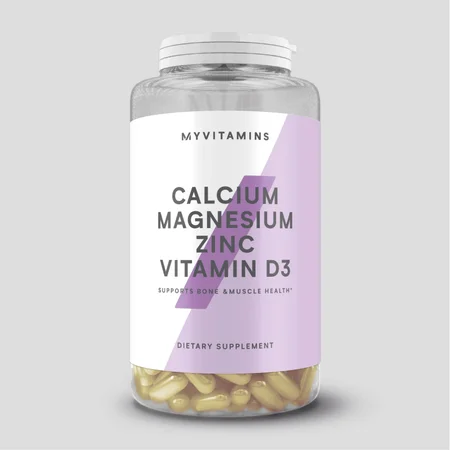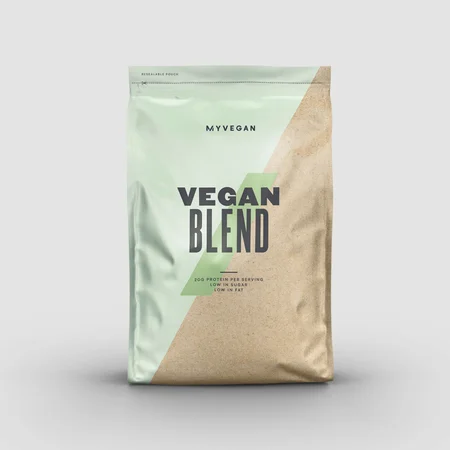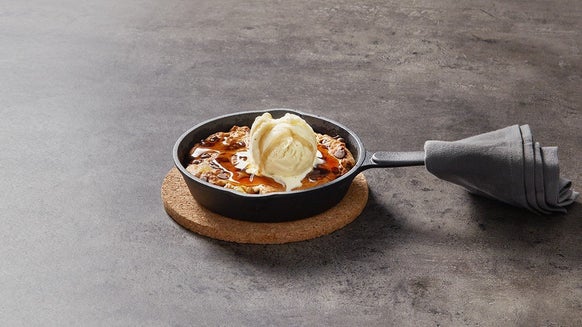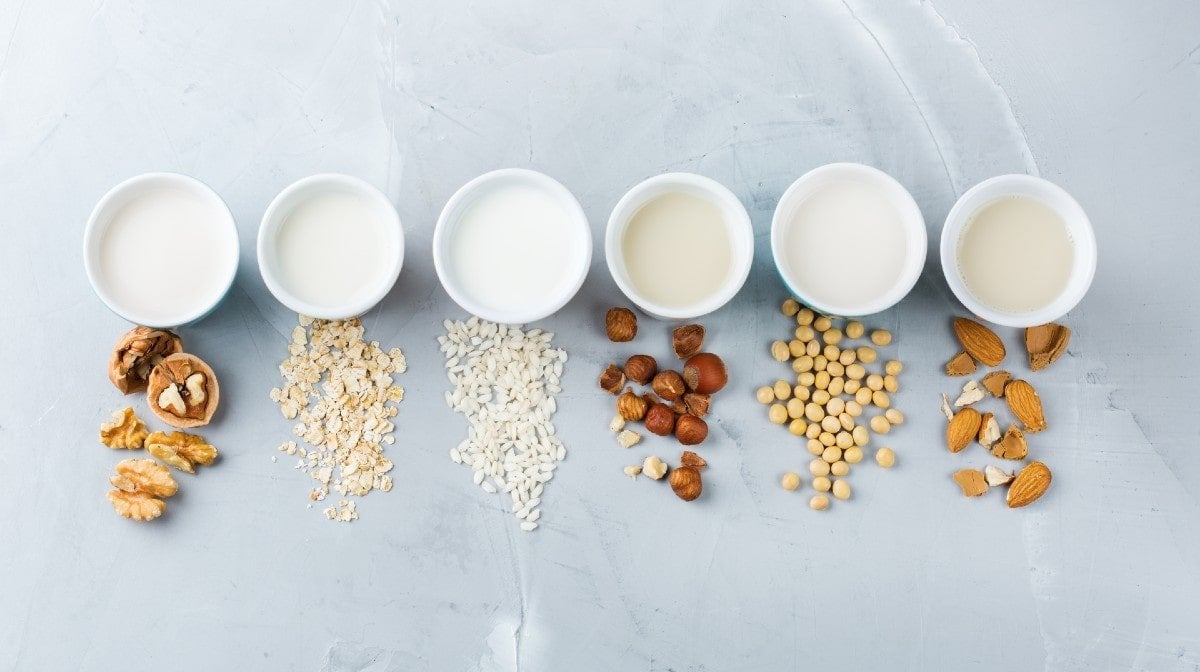
For those following a vegan diet, consuming enough calcium may be a concern for some as many of the best-known calcium-rich foods are found in dairy products like milk, cheese and yoghurt. However, there are many plant-based food sources high in calcium. This article will explain why calcium is important and suggest some of the best calcium sources for vegans.
- What is calcium?
- What are the benefits of calcium for vegans?
- Best vegan calcium sources
- Best vegan calcium supplements

What is calcium?
Calcium is a mineral involved in numerous bodily functions, including the maintenance of healthy bones and teeth as well as healthy muscles and nerves.1 For adults, the recommended daily amount of calcium is 700mg.1 It's typically found in food sources such as dairy, fruit, vegetables, nuts and seeds.
What are the benefits of calcium for vegans?
In a traditional diet, most calcium is obtained from dairy sources like milk, yoghurt and cheese. As dairy foods are off limits to people on vegan diets, it may be more difficult to consume the recommended amount of 700mg per day. Additionally, vegan-friendly calcium sources such as spinach, dried fruits, beans, seeds and nuts contain oxalates, and this reduces the amount of calcium your body can absorb from them.1 Therefore, plant-based dairy alternatives fortified in calcium are the best options for vegans.
The main function of calcium in the body is its role in bone and teeth health; approximately 99% of calcium is found in the bone.2 Calcium is required for the growth and maintenance of the skeleton and long-term deficiency in calcium, especially during developmental years, may lead to an increased risk of osteoporosis.3
The remaining calcium in the body is found in the blood, muscle, and other tissue where it plays an important role in muscle contraction, vasodilation and nerve transmission.4
Best vegan calcium sources
1. Soya milk (calcium fortified) – 119mg per 100ml
As well as being a good source of calcium, soya milk is also lower in calories than cow’s milk, with only 28 calories per 100ml. In half a pint of calcium-fortified soya milk, there is approximately 341mg of calcium.
2. Oat milk (calcium fortified) – 120mg per 100ml
Oat milk is a source of fiber, with 1g for every 100ml as well as manganese — a trace mineral that plays a role in bone production, blood clotting and metabolism. In half a pint of calcium-fortified oat milk there is approximately 341mg of calcium.
3. Almond milk (calcium fortified) – 120mg per 100ml
Almond milk is a low-calorie alternative to cow’s milk, containing 14 calories in 100ml. It is also a source of vitamins D, E and B12. In half a pint of calcium-fortified almond milk there is approximately 341mg of calcium.
4. Rice milk (calcium fortified) – 88mg per 100ml
Rice milk is a good source of carbohydrates, with 28g in a half-pint serving. This makes it a good post-workout choice following high-intensity exercise as it will help to replenish glycogen levels. Rice milk also contains iron, B12 and phosphorus, which all help with energy production. Half a pint of fortified rice milk provides approximately 249mg of calcium.
5. Tofu (calcium fortified) – 350mg per 100g
A quarter block of calcium-fortified tofu (116g) provides 406mg of calcium and approximately 97 calories. It also contains 9.4g of protein, 5.5g of fat and 2.3g of carbohydrates. Tofu also contains a range of minerals such as phosphorus and manganese.
6. Soya yoghurt (calcium fortified) – 120mg per 100mls
A typical serving of 125g of calcium-fortified soya yogurt will provide 150mg of calcium along with 4g of protein, 13.4g of carbohydrates and 2.5g of fats. It is also a source of magnesium.
7. Kale – 150mg per 100g
An 80g serving size of cooked kale provides 130mg of calcium. It contains 2.8g of fibre and is an excellent source of vitamin C. It also contains vitamins E, B9, and selenium.
8. Spinach – 119mg per 100g
An 80g serving size of spinach contains approximately 95mg of calcium. Spinach is an excellent source of vitamin K and is also high in vitamin C and magnesium.
9. Broccoli – 44mg per 100g
An 80g serving size of cooked broccoli contains approximately 44mg of calcium. It is also particularly high in vitamin K and vitamin C and provides 3g of fibre per serving.
10. Blackberries – 41mg per 100g
An 80g serving size of blackberries equates to about a handful or 9-10 blackberries. 80g of blackberries contains 32.8mg of calcium and provides a source of vitamins C, E, B9 and magnesium. The same size portion is also high in fiber, with 5.3g.
11. Chia seeds – 523mg per 100g
1 tablespoon of chia seeds is around 10g and provides 52mg of calcium and 4g of fiber. Chia seeds are a source of healthy fats and high in omega-3.
12. Brazil nuts (kernel only) – 176mg per 100g
An average portion size of Brazil nuts is 25g and approximately 5 nuts, providing 44mg of calcium. Brazil nuts are high in fat and calories, with 25g containing 177 calories and 17g of fat. Brazil nuts are an excellent source of selenium and are a good source of magnesium, phosphorus and vitamin E.
13. Almonds (with skin) – 268mg per 100g
An average portion of 10-12 almonds is 10g, which provides 26.8mg of calcium and 58 calories. Almonds also contain vitamin E, vitamin B7, phosphorus and magnesium.
Best vegan calcium supplements
Vegan A-Z Multivitamin
The Vegan Multivitamin A-Z contains 22 different vitamins and minerals, with each serving providing 120mg of calcium. Taking two capsules is an easy and convenient way of boosting your vitamin and mineral intake.
Take home message
While it may be more challenging for vegans to obtain as much calcium as those consuming dairy, there are plenty of vegan friendly food sources available. These include calcium-fortified milk alternatives, fruit, vegetables, nuts and seeds. It’s recommended that adults consume 700mg of calcium daily for healthy bones, teeth, muscle and nerve function.
READ THESE NEXT:
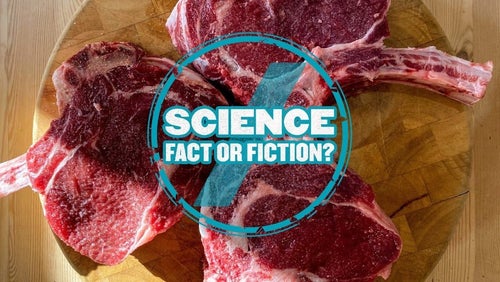
Science Fact Or Fiction: The Carnivore Diet
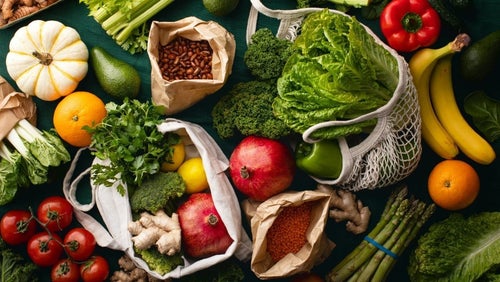
14 Meals For Success In Veganuary
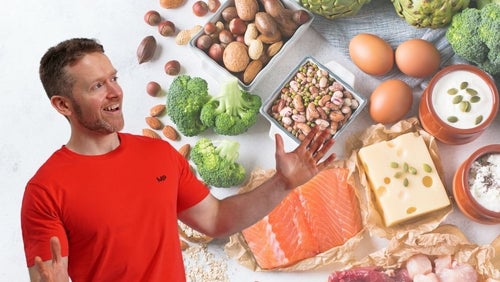
'High-Protein Diets Are Dangerous' | Nutritionist Calls Fake News
Richie spills the tea....

1. Bda.uk.com. 2022. Calcium. [online] Available at: <https://www.bda.uk.com/resource/calcium.html> [Accessed 12 July 2022].
2. Flynn, A. (2003). The role of dietary calcium in bone health. Proceedings of the Nutrition Society, 62(4), 851-858.
3. Zhu K, Prince RL. Calcium and bone. Clin Biochem. 2012 Aug;45(12):936-42. doi: 10.1016/j.clinbiochem.2012.05.006. Epub 2012 May 17. PMID: 22609892.
4. Institute of Medicine (US) Standing Committee on the Scientific Evaluation of Dietary Reference Intakes. Dietary Reference Intakes for Calcium, Phosphorus, Magnesium, Vitamin D, and Fluoride. Washington (DC): National Academies Press (US); 1997. 4, Calcium.
